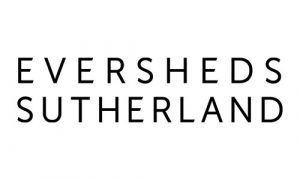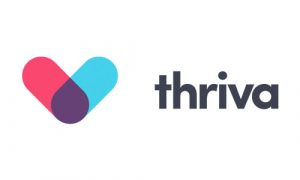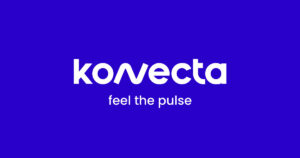Case Studies
Enhancing Legal Recruitment at Eversheds through Psychometric Assessment

Challenge
As one of the world’s leading law firms, Eversheds consistently aims to recruit top-tier legal talent across a wide range of specialist areas, including litigation, property, and employment law. With increasing competition for qualified solicitors and the growing complexity of client needs, it became essential not only to assess technical excellence but also to identify candidates who demonstrated strong cognitive ability, team alignment, and long-term potential within the firm’s culture.
Traditional interview processes, while thorough, were often focused heavily on experience and legal knowledge, making it harder to consistently assess softer skills such as problem-solving, adaptability, and interpersonal dynamics. This was particularly challenging when recruiting into roles requiring nuanced communication and collaboration across cross-functional teams.
Eversheds recognised the need to bring greater objectivity and insight into their selection process, supporting interview panels with deeper candidate understanding and ensuring recruitment decisions were based on both potential and proven capability.
Solution
To support this objective, Rostrup partnered with Eversheds to integrate psychometric testing into the external recruitment process for qualified solicitors. The approach combined personality profiling with aptitude testing to provide a rounded picture of each candidate’s suitability for the role.
Candidates were assessed using industry-standard tools that measured verbal and numerical reasoning, along with personality traits relevant to legal roles—such as attention to detail, resilience, critical thinking, and collaboration.
Once assessments were completed, Rostrup analysed the results and produced tailored insights for each applicant. These were then used to brief the interview panels, highlighting strengths and areas for further exploration during interviews. This allowed panels to ask more targeted questions, uncover potential development areas, and gain clarity on cultural fit and team dynamics.
Outcome
The integration of psychometric testing led to a more informed, efficient, and consistent recruitment process. Interview panels reported feeling more confident in their assessments and found the briefings invaluable in structuring interviews and reducing unconscious bias.
Candidates selected through this process demonstrated strong alignment with both the technical and behavioural expectations of the firm. In particular, those who scored highly in both cognitive and personality measures transitioned smoothly into their roles, showing early signs of strong performance and integration.
For Eversheds, the partnership with Rostrup strengthened their talent acquisition strategy and laid the groundwork for more predictive hiring decisions across the business.
Enhancing Leadership Collaboration and Organisational Culture at Thriva

Client Overview
Thriva is a fast-growing HealthTech company based in London, focused on helping individuals take control of their health through innovative, data-driven diagnostics and personalised healthcare insights. As a mission-driven business operating in a dynamic, evolving sector, Thriva places a strong emphasis on culture, collaboration, and leadership alignment.
Challenge
As Thriva has scaled, its Senior Leadership Team (SLT) has recognised the importance of strengthening internal collaboration and ensuring the leadership group is aligned both in working style and cultural vision. While the team is high-performing and united around the company mission, there is a desire to better understand individual working styles, communication preferences, and leadership approaches.
The goal was to surface both strengths and development areas across the team to support more effective collaboration, improve strategic decision-making, and encourage greater appreciation of diverse leadership contributions. Additionally, the SLT wanted to take an intentional step toward defining Thriva’s organisational culture and how it should be presented publicly to strengthen its employer brand and reputation.
Solution
Rostrup partnered with Thriva to design and deliver a half-day workshop focused on leadership self-awareness and cultural definition. In advance of the session, each SLT member completed a self-assessment personality profiling tool, generating individual reports that outlined their unique strengths, communication styles, and leadership traits.
During the workshop, Rostrup facilitated a highly interactive session exploring how individual styles influenced team dynamics, decision-making, change readiness, and communication. Insights were shared openly, helping the team understand how to better leverage one another’s strengths and adjust their interactions for greater impact.
The second half of the session focused on culture mapping. Through guided group activities, the SLT identified the core characteristics, values, and behaviours that defined the Thriva culture. These insights were consolidated into a working culture statement to serve as a foundation for future employer brand messaging and internal alignment.
Outcome
The session generated openness and authenticity. The SLT embraced the opportunity to reflect, challenge assumptions, and deepen their understanding of one another. This increased mutual respect, reinforced trusting relationships, and created clarity on how each member could contribute uniquely to team effectiveness.
The culture work also gained significant traction. The initial statement formed during the session became the starting point for a wider organisational initiative to refine and embed Thriva’s cultural identity, both internally and externally.
Virgin Media – Leading the Revolution

Client Profile
Virgin Media, a leading provider of broadband, television, mobile and home phone services, was created from a major organisational transformation with the merger of three distinct companies under a new corporate structure. The objective was to unify these previously separate entities under a single, purpose-driven brand — one that would deliver exceptional customer experiences through cohesive leadership and a shared cultural identity.
Challenge
Bringing three established organisations together created both opportunity and complexity. While the merger opened the door to new capabilities and reach, it also posed significant challenges: differing leadership styles, legacy cultures, and inconsistent approaches to communication and performance management.
To ensure a smooth integration and create a genuinely unified leadership culture, Virgin Media recognised the need for a transformational leadership development programme. The goal was to align Team Leaders and Managers behind a new way of working — one grounded in transparency, honesty, collaboration, and a shared belief in the power of feedback to drive continuous improvement and growth.
This wasn’t about tweaking existing behaviours — it was about leading a revolution in how leaders thought, communicated, and supported their teams.
Solution
To support this transformation, Virgin Media launched the “Leading the Revolution” programme — a bold, experiential learning journey designed to shift mindsets and unify leadership behaviour across the business.
Rostrup was part of a specialist facilitation team, contributing to the delivery of this high-impact development experience. The programme was delivered to cohorts of 60 Managers at a time, who were divided into smaller groups to ensure a personal and highly interactive learning environment. The format was a 2.5-day residential programme, rolled out intensively over a three-month period, ensuring momentum and consistency across the newly formed leadership population.
Key elements of the programme included:
- Developing a team-first mindset to overcome siloed behaviours
- Building confidence in honest and transparent communication
- Using feedback as a catalyst for learning and growth
- Encouraging self-awareness and shared ownership of cultural change
- Creating emotional safety and openness among peers
Rostrup was part of the team that guided participants through challenging but necessary conversations, using a mix of theory, storytelling, peer coaching and practical exercises.
Outcome
The “Leading the Revolution” programme had a powerful and lasting impact on Virgin Media’s leadership community. Managers embraced the invitation to lead differently — becoming more open, self-aware, and committed to team development.
Participants reported a significant shift in communication norms, with feedback becoming more routine, constructive, and welcomed across teams. Many described the experience as “career-defining,” noting how the programme helped them lead with more authenticity, empathy, and purpose.
Crucially, the initiative laid the foundations for a shared leadership culture — one that reflected the new Virgin Media brand identity and empowered leaders to drive the next chapter of business growth.
Rostrup’s role in delivery helped ensure the programme was not only engaging but deeply meaningful — turning strategic ambitions into human, actionable change.
Developing Future Team Leaders at Mylands

Client Overview
Mylands is a family-owned paint manufacturer based in London, known for its high-quality, handcrafted paints and finishes. With a heritage spanning over 135 years, the business combines tradition with innovation, maintaining a strong commitment to craftsmanship and excellence.
Challenge
As part of a broader succession planning initiative, Mylands’ Manufacturing Manager identified the need to develop leadership capability within the factory team. With long-term growth and operational continuity in mind, he aimed to upskill two high-potential factory operatives to prepare them for future team leadership roles.
However, this development needed to take place without causing disruption to the company’s tight production schedules. The challenge was to deliver meaningful leadership training that was both time-efficient and tailored to the practical realities of a busy manufacturing environment.
Solution
Rostrup designed and delivered a focused, two-day in-person training programme, tailored specifically to the needs of the two aspiring team leaders. The content was developed in close collaboration with the Manufacturing Manager to ensure it was relevant, accessible, and aligned with the day-to-day challenges faced in the factory.
The training was highly interactive and experiential, focusing on the foundations of effective supervision. Key topics included:
- Understanding the transition from peer to leader
- Communicating clearly and assertively
- Delegating tasks and managing time effectively
- Motivating and supporting team members
- Problem-solving on the factory floor
- Giving feedback and managing conflict constructively
The small group setting allowed for individual coaching, discussion, and real-time practice, giving both participants the opportunity to build confidence in a supportive environment.
Outcome
The programme was delivered successfully with zero disruption to production operations. Within four months of completing the training, both participants had stepped into team-leading responsibilities, supporting the Manufacturing Manager and guiding small groups within the factory.
This outcome not only demonstrated the immediate effectiveness of the training but also showcased clear career progression opportunities within the manufacturing team. Their advancement helped to reinforce a culture of development and internal promotion.
Furthermore, the presence of trained team leaders enabled new production processes to be introduced more efficiently, contributing to improved operational performance and enhanced team collaboration.
Through a targeted, practical training programme, Mylands successfully prepared two operatives for leadership — supporting succession planning and driving cultural growth on the factory floor. The initiative demonstrated how even small-scale leadership development can have a powerful and lasting impact in a manufacturing environment.
Online Leadership Development for FIA Senior Managers

Client Profile
FIA’s mission is to support open, transparent and competitive markets, protect and enhance the integrity of the financial system, and promote high standards of professional conduct. With a strong technical and compliance-driven focus, FIA’s leadership also recognised the importance of investing in people management and leadership capability at all levels of the organisation.
Challenge
FIA identified a need to provide targeted leadership development support for two Senior Managers who were transitioning into more strategic leadership roles. While both were technically excellent and highly committed, they were facing challenges in managing and developing their teams effectively. Specific areas for development included leading with authenticity, handling difficult conversations, and fostering collaborative, values-driven teams. As senior leaders, they needed practical tools to enhance their personal impact and leadership confidence, particularly in virtual and hybrid work settings.
Solution
Rostrup designed and delivered a bespoke 2-day online leadership training programme, tailored to the needs of the two participants. The programme was highly interactive and focused on five core themes:
- Authenticity in Leadership
- Coaching Skills
- Values-Based Leadership
- Handling Tough Conversations
- Building Effective Teams
Sessions were delivered via video conferencing, using real-life scenarios, role play, and reflective exercises to ensure high engagement and relevance.
Outcome
Both leaders reported a significant increase in self-awareness, confidence, and practical leadership skills. They felt better equipped to lead with clarity and compassion, address performance issues constructively, and build stronger, more values-aligned teams.
Speechmatics: Leadership Development

Challenge
Speechmatics, the fast-growing Cambridge based tech organisation identified leadership development opportunities on the back of its expansion and some challenging market conditions. Some newly promoted managers lacked formal leadership training, leading to inconsistent team management, communication gaps, and difficulties in decision-making compared to their more experienced colleagues. There was a lack of clarity in some role expectations, and engagement feedback suggested concerns about consistent leadership effectiveness. As the company scaled, the absence of a more structured leadership approach risked impacting innovation, collaboration, and overall performance.
Solution
To address these challenges, Rostrup designed a bespoke Leadership Development programme focused on equipping managers with leadership skills. The course blended interactive workshop sessions, case studies, and real-world simulations specific to the tech industry. Topics covered included strategic decision-making, emotional intelligence, conflict resolution, and agile leadership principles. Participants engaged in peer learning, scenario-based exercises, and one-on-one coaching sessions. The training also incorporated frameworks to enhance leadership capabilities, aligning with the company’s innovative culture.
Outcome
The Leadership Development course resulted in an improvement in leadership capability. Post-programme assessments showed an increase in confidence in managing teams and making strategic decisions. Employee feedback reported clearer communication and enhanced collaboration. Managers reported feeling more equipped to navigate change, motivate teams, and drive innovation. By embedding leadership best practices into daily operations, Speechmatics strengthened its leadership pipeline, ensuring sustainable growth and a positive work culture.
The initiative positioned the company for long-term success, reinforcing a leadership mindset that supports both people and performance in a dynamic environment.
A Decade of Leadership Development at Distilled

Client Profile
Distilled is one of Ireland’s leading digital media companies, based in Dublin, and best known for its portfolio of popular online marketplaces including Daft.ie, DoneDeal.ie, and Adverts.ie. With a fast-paced, innovative culture and a strong focus on people and performance, Distilled is committed to nurturing talent and building leadership capability at every level of the organisation.
Recognising that strong people management is essential to scaling sustainably, Distilled has invested consistently in leadership development. For over 10 years, Rostrup has been a trusted partner in supporting the growth and capability of Distilled’s people managers and wider teams.
Challenge
As the business has scaled so too have the demands placed on its managers. Many were high-performing individual contributors promoted into leadership roles, often without prior experience in people management. There was a clear need to equip managers with the skills and mindset needed to lead confidently and consistently in a dynamic, tech-driven environment.
Additionally, as Distilled matured and brought different businesses together, the company aimed to develop a cohesive management culture — one rooted in strong communication, emotional intelligence, and performance accountability. There was also a need for regular learning touchpoints to maintain momentum and respond to changing organisational priorities such as goal setting, giving feedback, and managing change.
Solutions
Over the course of a decade-long partnership, Rostrup has designed and delivered a comprehensive suite of development solutions, tailored to meet Distilled’s evolving leadership needs:
- People Manager Academies – Two full-cycle People Manager Academy programmes were developed and delivered to support both new and more experienced managers. These programmes focused on core leadership skills including performance management, coaching, emotional intelligence, goal setting, feedback, and leading change. The content was practical, relevant, and built around Distilled’s values and real-world scenarios.
- 1:1 Coaching – A series of coaching assignments have supported individual leaders with personalised development goals. These ranged from transitioning into new leadership roles, to improving team dynamics, communication style, and strategic thinking.
- Quarterly Management Forums – To sustain development and foster shared learning, Rostrup facilitates quarterly Management Forums, providing space for reflection, learning new tools, and discussing live leadership challenges.
- Topical Workshops – In response to organisational needs, Rostrup delivers a range of topic-specific training sessions to staff and managers alike. These have included sessions on emotional intelligence, feedback conversations, goal setting, and navigating change, helping to build a shared language and leadership toolkit across the business.
Outcome
The long-standing partnership between Distilled and Rostrup has had a transformational impact on the company’s management capability. Managers now operate with greater confidence, consistency, and emotional intelligence, contributing to stronger team performance and a more cohesive leadership culture.
The People Manager Academies have created a strong pipeline of capable leaders, while the coaching and forums have embedded continuous learning into the leadership journey. The wider team has benefitted from targeted training that reinforces the organisation’s values and people-first approach.
Rostrup’s tailored and responsive support has helped Distilled maintain a high-performing, human-centred culture — supporting its ongoing success as one of Ireland’s leading digital businesses.
Strengthening Leadership Capability at GSK Ware

Client Profile
GSK (GlaxoSmithKline) is one of the world’s leading pharmaceutical and healthcare companies, with a commitment to innovation, science, and improving health outcomes globally. The Ware production site in Hertfordshire is a key manufacturing hub, responsible for the production of critical medicines and treatments.
The site’s success depends not only on operational excellence but also on strong, resilient leadership at the local level. GSK recognised the importance of developing its people managers to foster high-performing teams, enhance collaboration, and ensure a culture of continuous improvement and safety.
Challenge
At the Ware site, a small but pivotal management team of eight was facing several challenges. As the production environment became more demanding, the team needed to enhance its approach to performance management, conflict resolution, and communication to ensure consistent leadership.
There was also a broader desire to build authentic leadership behaviours, encourage open feedback, and create a stronger sense of psychological safety and accountability within their teams. Leaders needed the tools and confidence to coach effectively, manage difficult conversations, and model the culture they wanted to embed.
Solution
Rostrup designed and delivered a tailored, in-person 4-module management development programme, specifically for the Ware management team. Each module was highly practical, with exercises and discussions anchored in the real day-to-day challenges of leading in a production environment. Key topics included:
- Conflict Resolution – Tools and techniques for managing tension constructively and proactively
- Performance Management – Setting clear expectations, accountability, and support
- Authenticity & Feedback – Leading with integrity and holding honest, growth-focused conversations
- Coaching & Psychological Safety – Creating an environment where team members feel safe, heard, and empowered
The sessions were spaced out over six months to allow for application between modules and included peer reflection and action planning.
Outcome
The programme significantly enhanced the leadership cohesion and capability of the Ware management team. Managers reported greater confidence in tackling performance issues, resolving conflict, and coaching team members effectively. The focus on authenticity and psychological safety led to stronger team relationships and a more open, trusting environment.
Crucially, the training helped shift the team’s mindset from reactive problem-solving to proactive people leadership, setting a strong foundation for sustained cultural and operational improvements at the site.
Driving High-Performance Teamwork at Konecta

Challenge
As Konecta continues to grow as a leading provider of customer experience and outsourcing services across Europe, the need for strong collaboration across teams has never been greater. For a Vienna offsite, leadership identified key challenges in how teams worked together — particularly around cross-functional collaboration, mutual support, and fostering a sense of shared accountability.
While individual performance remained strong, there was a growing need to shift toward a more interdependent, high-performance culture where teams could operate with greater cohesion, trust, and strategic alignment. Konecta sought a team-building experience that went beyond the traditional “away day” — one that would offer practical insights and build lasting behavioural change.
Solution
To meet this need, a bespoke team-building event was designed and delivered by Rostrup for a group of 30 employees in Vienna. The experience combined accessible theoretical content with engaging, real-world application to deepen understanding and embed learning.
The event kicked off with interactive sessions introducing the principles of effective collaboration, psychological safety, and team interdependence, using frameworks from high-performing team research. These ideas were made practical and relatable through real-world examples and facilitated discussion.
Participants then applied these concepts in a business simulation activity, designed to mirror the pressures and dynamics of a real work environment. Teams were challenged to collaborate under time pressure, share information effectively, and rely on one another to achieve success — mirroring the demands of their roles at Konecta.
Outcome
Participants reported improved understanding of each other’s working styles, a greater appreciation for cross-team dependency, and a renewed sense of collective ownership. Post-event feedback showed increased motivation, stronger communication, and a clear commitment to building a high-performance culture.
Strategic Thinking Development for YouTube Partnerships Team

Client Profile
YouTube, part of Google, is the world’s leading video-sharing platform with billions of users and creators worldwide. The YouTube Partnerships Team plays a critical role in supporting creators, broadcasters, and digital media organisations to maximise content performance and audience engagement.
Operating at the intersection of tech, media, and culture, the Partnerships Team must deliver short-term results in a rapidly evolving market while also contributing to the long-term growth strategy of the platform. The team’s ability to think strategically, despite intense operational pressures, is a key success factor.
Challenge
In today’s demanding economic and digital landscape, the YouTube Partnerships Team was feeling the pressure of balancing operational excellence with long-term strategic thinking. While team members were highly skilled in execution and relationship management, there was less time — and fewer structured opportunities — to step back and engage in deeper, more future-oriented thinking.
Leaders were expected to consistently deliver growth and make high-stakes decisions with limited resources, in a market where change is constant and ambiguity is the norm. The challenge was not a lack of capability, but rather the absence of space, tools, and frameworks to support effective strategic thinking under pressure.
The team recognised the need for an intervention that would provide clarity around what strategic thinking really is, and how to practically apply it in their day-to-day roles.
Solution
Rostrup was engaged to design and deliver a Strategic Thinking programme tailored specifically for the YouTube Partnerships Team. The programme was highly interactive and grounded in real-world challenges faced by the participants.
Delivered in a virtual format to suit global teams, the training focused on the following learning outcomes:
- Clarifying the difference between operational and strategic thinking
- Introducing a structured process for strategic planning
- Providing multiple lenses and models to support future-focused decision-making
- Practising scenario analysis and dealing with complexity and ambiguity
- Applying competitive thinking and exploring strategic responses to market shifts
- Understanding how to evaluate external trends and internal capabilities
- Encouraging an open, opportunity-seeking mindset
The programme included case studies, group discussions, and live application exercises that enabled participants to explore strategic tools.
Outcome
The Strategic Thinking programme had a significant impact on the YouTube Partnerships Team. Participants reported a clear improvement in their ability to:
- Pause and step back from the operational space
- Apply a structured and repeatable approach to long-term planning
- Identify and challenge assumptions in their day-to-day work
- Explore creative, resourceful solutions to current business constraints
- Engage in strategic conversations with senior stakeholders more confidently
The programme not only deepened the team’s understanding of strategic thinking but also created a shared language and mindset across the group. By giving leaders the tools and space to think differently, Rostrup helped unlock greater innovation and alignment — empowering the team to lead with both agility and vision in an increasingly complex environment.


